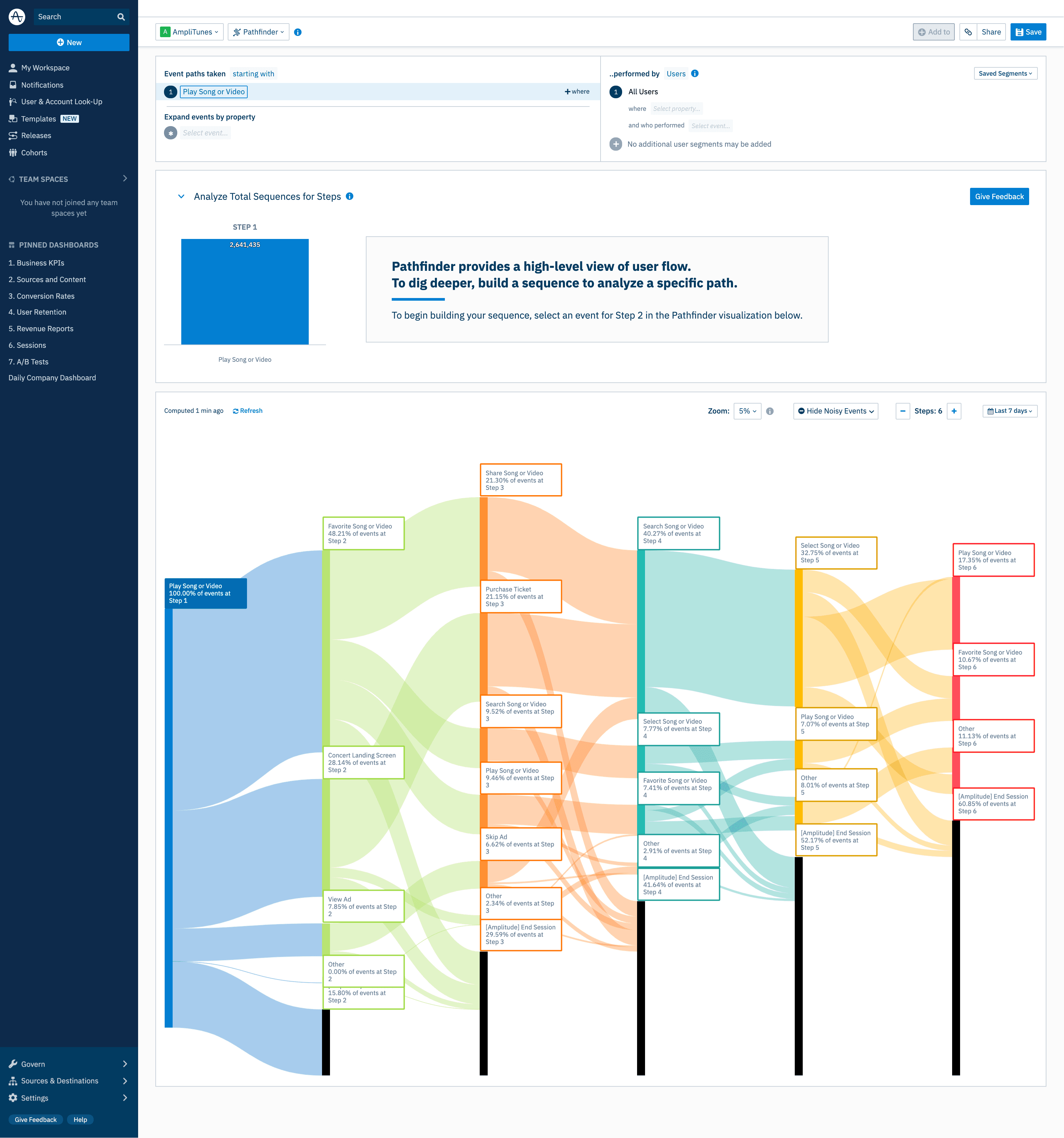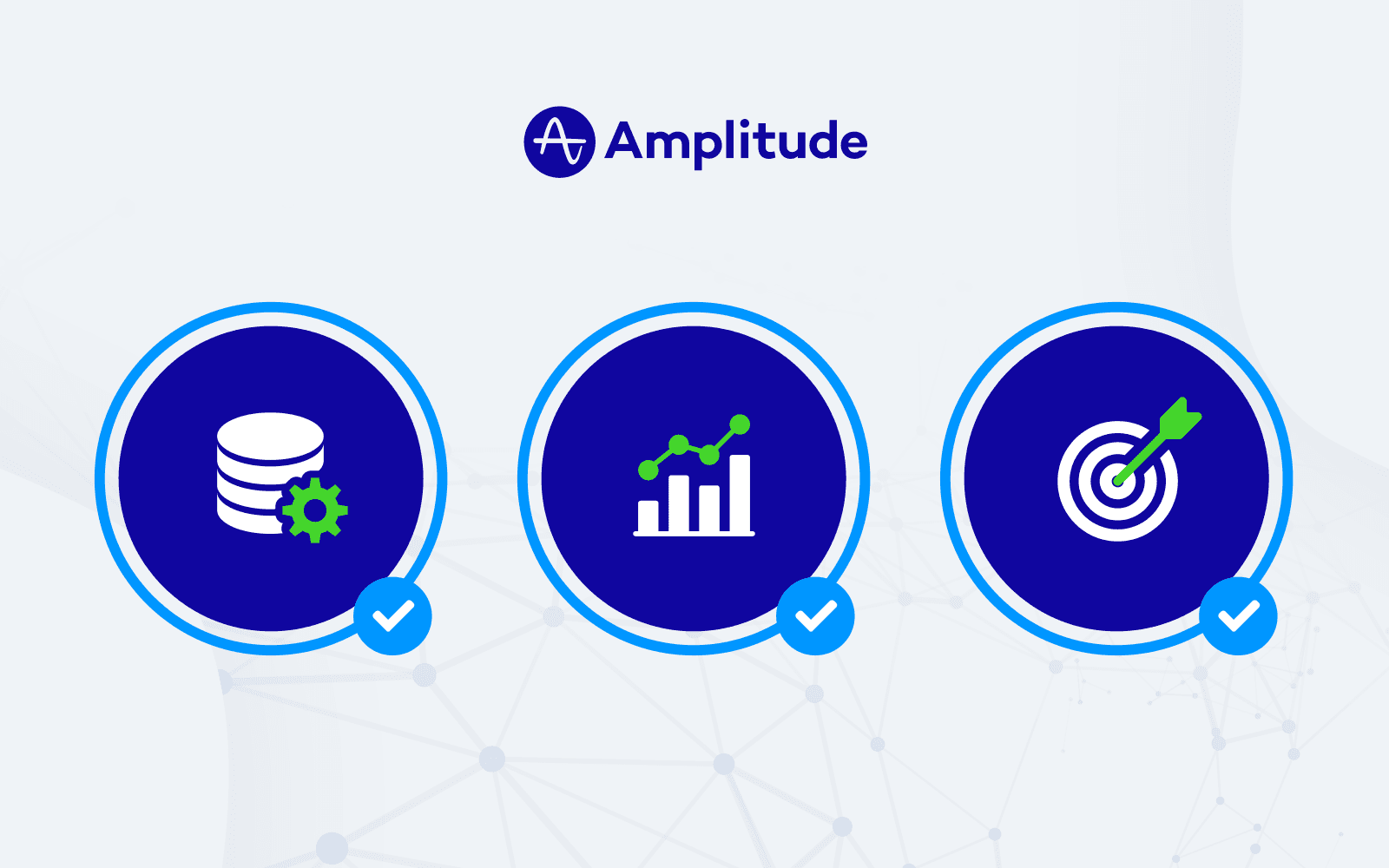How Product Intelligence Helps You Compete on the Customer Experience (CX)
Product intelligence offers businesses a deep understanding of the customer experience with data management, product analytics, and behavioral targeting.
Consumers are picky about their digital products. With nearly limitless choices, they can afford to be.
That’s why customer experience, or CX, has become a defining factor of business growth. According toGartner’s Customer Experience Survey, 73% of buyers claim CX is the #1 factor in loyalty—and loyal customers are five times more likely to purchase again. Gartner also reports that 81% of organizations expect to compete primarily on CX every year.
The key to unlocking the digital customer experience? Product intelligence: a combination of data management, product analytics, and behavioral targeting. With product intelligence tools, businesses can get the insights they need to understand the end-to-end customer experience. These insights empower businesses to build better products and continuously improve their CX.
1. Data Management: Using Reliable Customer Data
According toZendesk, companies that leverage the most data—“defined as those in the top 25% of managing data relative to other similar companies”—create better customer experiences. They also solve four times as many requests. CX and data are linked because, as Amplitude Product Marketing ManagerAnastasia Fullerton says, “The only way to answer questions about customer experience at scale is with your data. It’s essentially the way a company can have a conversation with their customers at scale.”
But what if your customer data is messy and siloed? The only thing worse than having no customer data is having data so disorganized that it’s impossible to use.
Make sure your customer data is trustworthy and reliable by using a data management framework.Data management is a system for handling the flow of customer data, making sure that it’s formatted and maintained so that the data remains useful.
There are three pillars to a strong data-management framework: education, instrumentation, and maintenance.
- Education: Teach employees how to use your company’s data. You should educate your whole company (not just the analyst team) on why data matters, how your data collection process works, and how to add data to your system.
- Instrumentation: Establish workflow and policies around data collection and use. Define product metrics and a taxonomy (data style guide or naming system), and instrument it across all of your data.
- Maintenance: Continue working with your data in an organized way. If everyone follows the education and instrumentation processes well, data will be low-maintenance. Define who’s in charge of each aspect of the data instrumentation process so that employees know what to do and who to talk to if they have questions about the data.
With strong data management practices in place for your customer data, you can trust that your product analytics platform is presenting you with accurate and trustworthy insights on the customer experience.
2. Product Analytics: Understanding the Digital Journey
Product analytics tools analyze your customer data so that you can ask and answer questions about the customer experience. This leads to a deeper understanding of your customers’ needs, how they derive value from your product, and what impact your product experiments have on CX.
Three kinds of analysis you can perform with a product analytics platform like Amplitude are cohort analysis, pathfinder analysis, and milestone analysis.
Cohort analysis
Cohort analysis is a method for sorting customers in groups, such as by which actions they take within your product. This analysis lets you go beyond basic segmentation—such as organizing by demographic or location—by creating cohorts around complex behaviors.
For example, you could create cohorts based on whether customers engaged with a certain feature, converted from a particular marketing campaign, or completed a referral.
Different people will use your product in different ways—an obvious fact that unfortunately gets overlooked when you analyze customer data in bulk. Cohort analysis prevents those differences from becoming lost in a sea of data so that you can understand the customer experience on a granular level.
Pathfinder analysis
Pathfinder analysis is an Amplitude tool that uncovers the different series of actions that customers take within your product. It aggregates all the user flows—up to 15 steps—that customers take within a given time frame.

This analysis helps you build a more sophisticatedfunnel analysis by discovering user flows leading to conversions that you may not have been aware of. You can examine the paths that customers take before completing a particular action and what series of actions they take afterward.
Milestone analysis
Milestone analysis helps you uncover key moments in the customer journey when user behavior shifts, and people start heading down the path to becoming high-value customers.
These milestones are often connected to the number of times a person completes an action with your product. That could be playing their 7th song, making their 3rd purchase, or finishing their 4th workout. After the customer crosses that threshold, they become more engaged and more likely to retain.
Once you discover these moments, you can encourage more of your customers to reach that milestone. Amplitude is currently the only product analytics solution that lets you quickly and easily analyze your customer milestones.
Using product analytics to perform these kinds of analyses creates a flywheel effect that powers your CX. You create a loop of asking and answering questions about the customer journey, using those insights to inform product interventions, and then asking more questions. This cycle continuously powers the customer experience.
3. Behavioral Targeting: Creating Personalized Marketing and Engagement Campaigns
Personalization is the future of CX. Consumers expect to receive messaging tailored to their interests and intent.A OneSpot survey found that 78% of people reported being more likely to purchase from a brand when they received personally relevant content.
Creating personalized experiences requires the sophisticated deployment of behavioral data. By targeting customers based on their behavior, you can build marketing and engagement campaigns that are highly relevant.
Behavioral targeting makes your acquisition more efficient because you can focus on advertising to the customersmost likely to convert. It can also improve feature adoption and engagement by showing customers the product aspects that are most relevant to them.NBCUniversal, for example, was able to double their Day 7retention rate with Amplitude by tailoring their app homepage based on user history.
Make CX Your Competitive Edge with Product Intelligence
Understanding your customers’ digital behavior is key to improving your CX. Businesses are aware of this dynamic, but many are still struggling to interpret their customer data with tools that don’t offer behavioral insights.
Product intelligence tools like Amplitude give companies a competitive edge. Our Product Intelligence Report found that businesses that use product intelligence ship more product releases and see more revenue growth. Iterating quickly lets companies continuously experiment and improve their CX based on data. Join a live Amplitude workshop to see how you can get ahead.

Victoria Rainbolt
Former Content Project Manager, Amplitude
Victoria is a former project manager on Amplitude's marketing team and is passionate about problem solving and cross-functional collaboration. When not contributing to projects, Victoria directs an elite women's cycling team and competes in ultra-endurance cycling events.
More from Victoria




